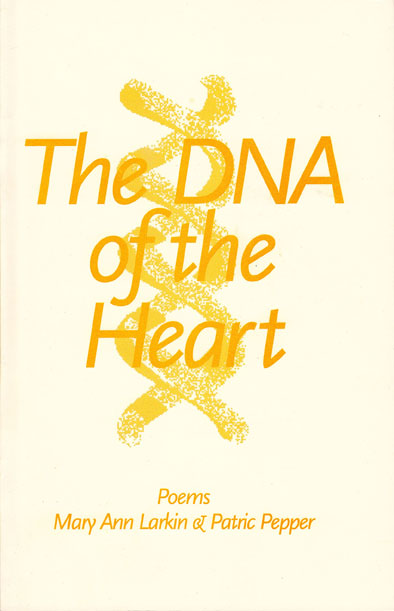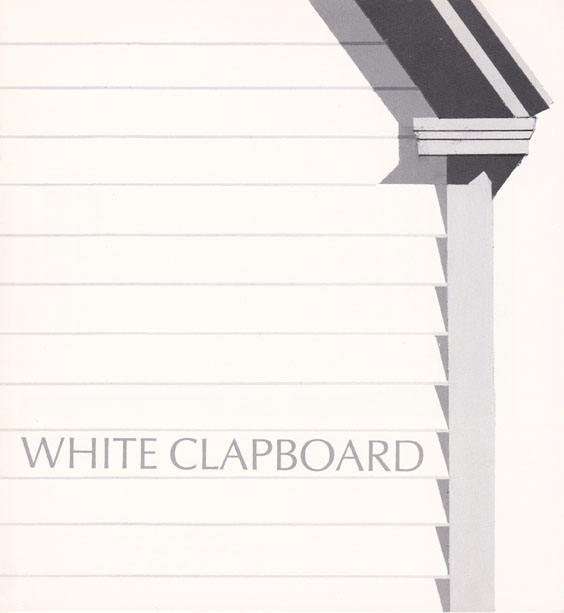for That Deep & Steady Hum, Broadkill River Press, 2010
from Jamie Brown, publisher, Broadkill River Press
"Mary Ann Larkin's poetry is deceptively uncomplicated, with a flow like the deeper current of water or the hum of low-voltage electricity. Her work is as simple as that of Robert Frost's was, which is to say not at all. Her work is as domestic as the goddess Diana and as warlike as the goddess Demeter; her work is honest but not blunt, uncompromising but not confrontational, fearless yet humble. The echos of an ancient world run through her work, even that work which is pointedly modern. If Rhiannon were to read it, she would see much of herself in these poems."
from Dan Vera, publisher, Beothuk Books
"A good book is one you buy after a spectacular reading and then spend the next week reading thoroughly and thinking repeatedly, "Wow! I love this poem! I'm in week two of grand jury service and I can't tell you what a diurnal delight the poems out of this book have been. "Mrs. Danley" was this evening and "Blood Lines" this morning. Just beautiful stuff."
*********************************************************************************
for gods & flesh, Plan B Press, 2007
from The Comstock Review, 2007
"Mary Ann Larkin's newest chapbook, gods & flesh, blends the spiritual and sensual seamlessly in these perfectly pitched poems of body, spirit, and human longing. These evocative and often surprising poems, exemplify the best of the lyric tradition and I recommend it highly."
from Jean Nordhaus, author of Innocence
" From the opening lines of Mary Ann Larkin's first poem, 'Once, you will say, / we had a yellow house,' a poem which recalls Yeats' Innisfree in its evocation of beauty and loss, we know we have entered a zone of mystery — a mystery that encompasses both the sacraments and the enigmas of our secular, sexual, migratory American lives. Better than any poet I know, Larkin captures the intertwining of sensuality and spirituality, of physical and spiritual longing, in poems that wed narrative to lyric and are always alive and surprising. These poems are strong and unembarrassed. Above all they are poems of love (of the body, the physical world, of friends, the past, the incomprehensible stars). Here is a compassionate, clear-eyed love that stands 'straight up to death / the way a wave stands up / transparent / and, really, most beautiful then, / before it falls.'"
*********************************************************************************
for A Shimmering That Goes With Us, Finishing Line Press, 2005
from Gray Jacobik, winner of the AWP Poetry Series Award
"Here are poems that embody the stillness, silence, peace and transcendence possible when a poet of Mary Ann Larkin's delicate eloquence bears witness to the death of a beloved friend, the sensitive and gifted poet and painter, Barbara Angell. When such a dying is experienced deeply, a privileged and rare speaking unfolds. Like the finger pointing toward the Moon that is neither about the Moon nor itself, these true and transparent poems accomplish the elusive master work of both enriching and challenging the human spirit. I advise the prospective reader not to take up this collection unless he or she is willing to make of dying--one's own or another's--a work of art. Such is the extraordinary force of these quiet and deeply-distilled poems."
from The Comstock Review, 2007
"A Shimmering that Goes with Us tells of friendship between two women, the poet and Barbara Tanner Angell, and is a tribute to the latter, who died of breast cancer. The poems are as luminous as the title: tender, quietly intense, peaceful and transcendent. Is is difficult to write on this theme without sentimentality and the poet achieves this goal perfectly."
from www.themontserratreview.com by Grace Cavalieri
"Many books are written about the freedom to grieve. In this limited collector’s edition Mary Ann Larkin champions death in the only way that comforts, with poems. The birth and the death of a friendship are chronicled here and we find how these are interchangeable and carry the same spirit, transversing time and distance…. It is always a contribution to show grief as other than drab. Sadness, worry and prayer have always been handmaidens to poetry, and the luster of these poems follow Mary Ann’s friend beyond their friendship and even beyond that."
*********************************************************************************
for The Coil of the Skin, Washington Writers Publishing House, 1982
from Columbia Road Review, by Maxine Combs, June 1983
"In the title poem of Mary Ann Larkin’s The Coil of the Skin the poet
describes old men who ‘remember watching a father paring an apple / the coil of
the skin / wondering when it would break’; and this image, the spiraled paring of
apple skin, acts as metaphor for the poet’s belief that the continuity of life--in this
case the line that reaches from grandparents to intimations of the poet’s own
death--is sustained by love, and especially by physical contact.
"In ‘Grandma’ the poet recounts how her grandmother ‘walked the dark
streets / in the wet spring after Grandpa died’ and how the priest sent her home
to her children and how ‘There was no one to speak for / your untouched skin’
as she obediently settled into an uneasy truce with her widowhood. What she
notices in family photos of her now dead mother is how ’In the pictures / they
cling to each other,’ (‘The Island on Sunday Afternoons’) and what she
remembers in ‘Riding on a Streetcar with my Father’ was that ‘My father’s arm
keeps me / from blending into the darkness.’
"The sense of touch is particularly emphasized in poems that deal with the
poet’s own love life (either absent or present). In ‘Adriatic Songs’ the poet
notices ‘There is variety / in white on white / silver-grey lichen / against white
rocks.... / Your hand / on my belly.’ Or, in ‘In the Meadow’ Larkin asks, ‘Is it not
so, love / that once your sun-hot hair / burnt my hand.’
“In ‘Pilgrims’ the poet makes the lack of physical love a tangible loss:
I awake with your absence in my arms
the taste of you not in my mouth
My aunt the nun slept alone
I picture us both wrapped in her shawl
We go like pilgrims
around some high stone wall
Girls in white dresses
look down on us
We are not
who we want to be
"And in the final poem in the collection, the lovely ‘Interlude,' Larkin
conjures up incorporeal life, what it will be like ultimately to surrender the
physical world, the coil of the skin:
Will death take me as sweetly
Will I moan and go willingly
.....................................
I picture a field going on
light and shadow like today
only we won’t care
Or will we give anything
just to feel
a drop from the frying pan
pop, against our skin
O love,
we will have no skin
from Washington Review, by Richard Flynn, Feb-Mar 1983
"This year Washington Writers Publishing House (WWPH) has published
one competent and often moving collection, The Coil of the Skin, by Mary Ann
Larkin. Larkin’s collection is indeed satisfying. From the typography and design
to the quality of the poetry, it is evident that the greatest care was taken with
The Coil of the Skin.
The book’s subject is the family, with a particular focus on the
nature of affection, both sexual and filial. The tone of the volume is sometimes
detached, sometimes involved, at times superficially disinterested or
disconcerting, but always humane.
"Remarkably free of preconceptions, prejudices or stereotypes, Larkin’s
work demonstrates a willingness to use the poem to discover what she really
wants to say. Even in the less successful poems, one does not get the feeling
that she has let the poem go unfinished. There are heroes (usually female) in
Larkin’s book whose most heroic quality is that of perseverance. The poet
seems to practice what she admires. Just as the strong women in The Coil of
the Skin retain their integrity and autonomy against the odds, so Larkin heeds
her models by offering the reader poems marked by those qualities."

